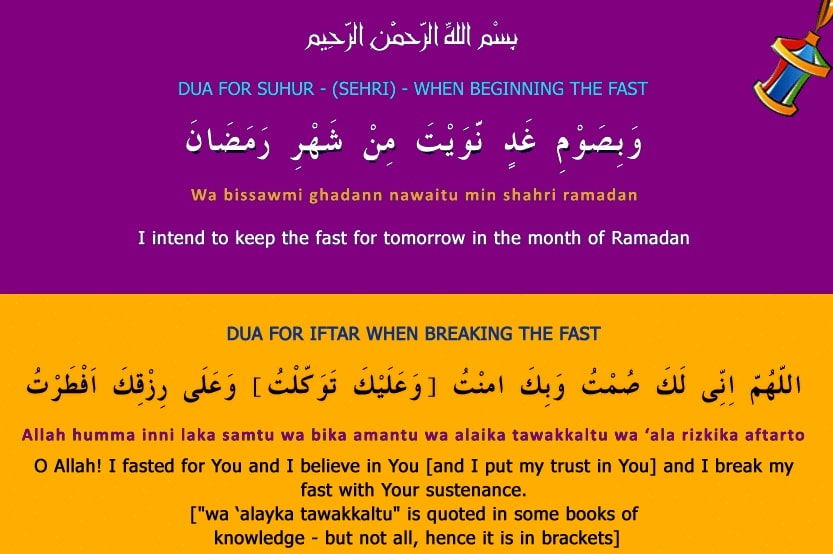Table of Contents Show
The phrase “Allahumma laka sumtu wa ala rizqika aftartu” is an Arabic supplication that translates to “O Allah, for You I have fasted, and with Your provision, I break my fast.” This invocation is traditionally recited by Muslims during the month of Ramadan, particularly at the time of breaking the fast (Iftar). It expresses gratitude to Allah for the strength to fast and acknowledges His role as the provider of sustenance.
Understanding the Significance of the Dua
This dua encapsulates the essence of Ramadan, a month dedicated to spiritual reflection, increased devotion, and worship. Fasting during this holy month is one of the Five Pillars of Islam, and it serves multiple purposes, including fostering a sense of community, empathy for the less fortunate, and self-discipline.
By reciting this supplication, Muslims remind themselves that their efforts in fasting are not solely for personal gain but are acts of worship directed towards Allah. It emphasizes the belief that all sustenance and provisions come from God, and breaking the fast should be an occasion of gratitude.
The Role of Dua in Daily Life
Making dua, or supplication, is a fundamental practice in Islam. It is a way for individuals to communicate with Allah, express their needs, seek guidance, and show appreciation. The dua recited at Iftar is just one of many instances where believers can connect with their faith and seek blessings. In fasting, Muslims not only abstain from food and drink but also engage in increased prayer, reading of the Quran, and acts of kindness.
The Spiritual Benefits of Fasting
Fasting is not just about abstaining from food; it is a holistic practice that nurtures spiritual growth. The discipline required during Ramadan cultivates a sense of mindfulness and encourages reflection on one’s actions and intentions. Moreover, breaking the fast with a heartfelt dua allows for a moment of connection with the Divine, reinforcing the spiritual benefits of the month.
In conclusion, the phrase “Allahumma laka sumtu wa ala rizqika aftartu” is more than just a supplication; it is a reminder of the relationship between the believer and Allah. It signifies gratitude, reliance on Divine provision, and the importance of faith during the sacred month of Ramadan.










